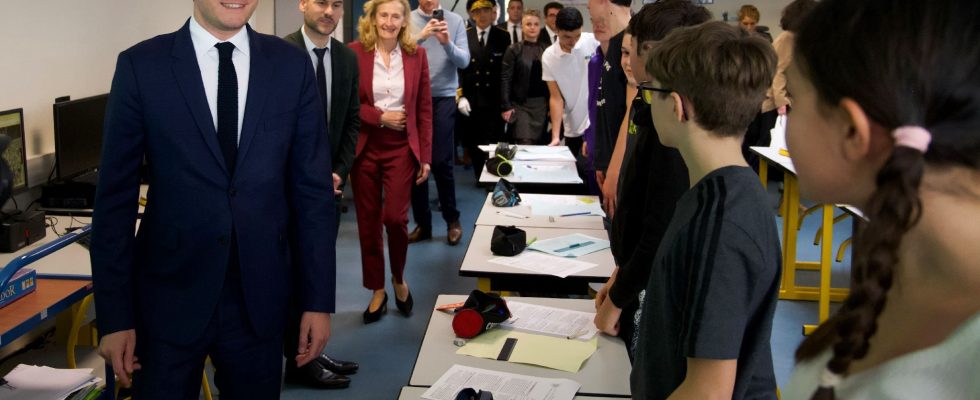The Ministry of Education published, this Monday, March 18, the note detailing the establishment from the next school year of “groups” in order to “raise the level of all students” in mathematics and French in middle school, by confirming “flexibility” in their organization.
In this note intended in particular for heads of establishments and teachers, published in the Official Bulletin of National Education, the ministry specifies the objectives and methods of organizing these “groups” in 6th and 5th grade classes at the start of the 2024 school year and in 4th and 3rd a year later.
This text, entitled “Shock of knowledge, a new ambition for the college”, awaited by teachers, is published the day after the publication of the decree in the Official Journal. As in the decree, the wording “level groups” does not appear, although it has been used many times by Prime Minister Gabriel Attal, former Minister of Education, at the origin of the “Shock of knowledge”, the set of measures intended to raise the level of students.
These “groups” in maths and French in middle school, depending on the level of the students, are very criticized by some teachers who fear a “sorting” of the students. The Minister of Education Nicole Belloubet, who arrived in February, spoke on several occasions of a “certain flexibility” in the establishment of these groups, which she preferred to describe as “need groups”.
Groups limited to “around fifteen students”
This idea of ”flexibility” is taken up in the official note: “confidence in the teaching teams, flexibility in the organization and the mobilization of all the staff concerned” will be “at the heart of the implementation of this new organization”. “It is a question of taking into account the specificities of each structure to put in place the most appropriate organization,” adds the document. The recommended objective is to limit groups containing “a significant number of students in difficulty” to “around fifteen students”.
“These groups can relate to different aspects”, such as “part of the program” or even “more transversal skills” such as “the ability to concentrate, memorize or organize one’s work”, specifies the note.
For the so-called “preparatory classes for the second year class” – intended for students who failed the certificate at the end of the 3rd year –, the note published in the Official Bulletin considers a “project approach” “particularly suitable”. At the end of this class, “a certificate of end of preparatory cycle is given by the head of the establishment” to the student. This year is “non-renewable” and the students then continue “their education in the second year class and in the establishment to which they were admitted at the end of the third year”. Those who did not have an assignment at the end of 3rd year “can continue their education in a 2nd year class of the high school where they completed” their preparatory class, “subject to consistency with their orientation project”.
